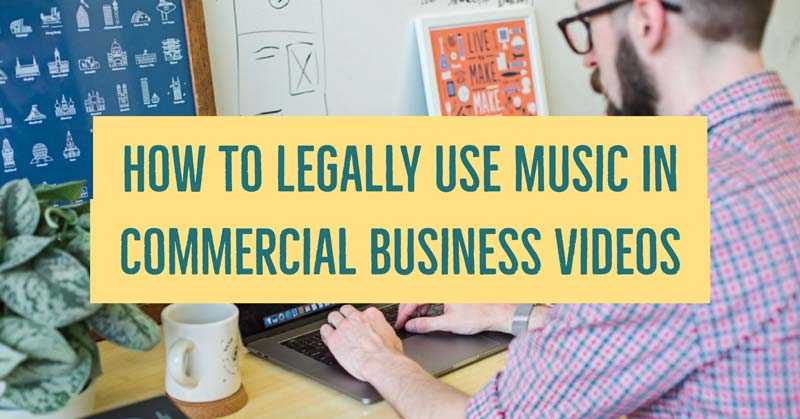
I like this song! Can I use it in my video?
In this tutorial we’ll go over few options that would allow you to use copyrighted commercial music in your marketing or corporate videos without violating the copyright law.
Why use background music?
Multiple marketing studies have suggested that music helps to enhance the success of video marketing campaigns.
Just to recap, here’ are the top 3 reasons most marketers and business owners opt to include music in their promotional videos:
1. Music helps to grab attention even before anything happens in the video.
2. Music helps to control perception. Do you want the viewers to perceive your brand as confident and trustworthy? To perceive your service or product as comforting and worry-free? Music can help you to achieve exactly that!
3. Music helps to set the mood and creates emotional connection with your target audience. Think, how do you want the viewer to FEEL when watching your video? Exited? Comforted? Alert? Emotional?
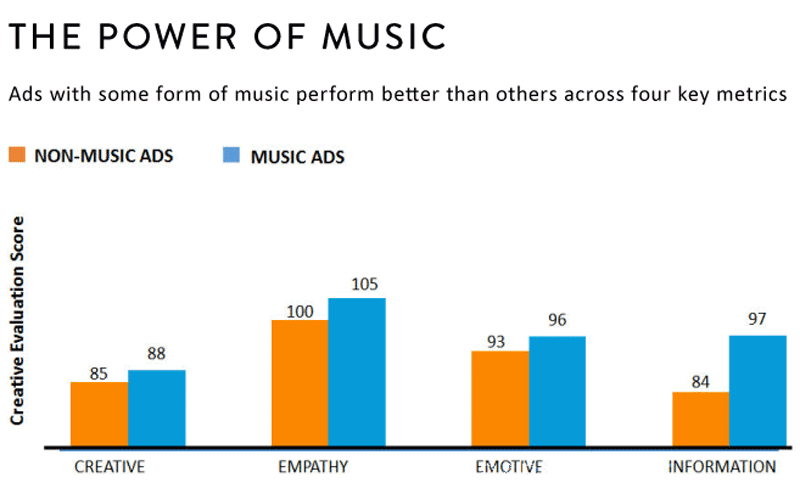
Related: Choosing Music For Business Video? 3 Rules You Can’t Ignore
Not every video needs music
However, don’t think the music is a magic wand that can instantly bring you sales and clients. It’s just one part of a complex marketing puzzle.
Here are two extreme examples:
a) Animated explainer video with no spoken word.
b) Recording of a conference presentation.
I wouldn’t use music in the conference presentation video, as it would only distract the viewers. On the other hand, watching the explainer animation in silence just wouldn’t feel right.
Use common sense and your best judgement when deciding if you should use background music in your marketing video.
Can I legally use copyrighted music in commercial marketing videos?
Either if you make marketing videos for your own small business or create content for your clients, you will eventually find yourself in need of legal background music.
As a rule of thumb, you must obtain permission from the copyright owner to use any copyrighted material, even when working on strictly non-commercial projects.
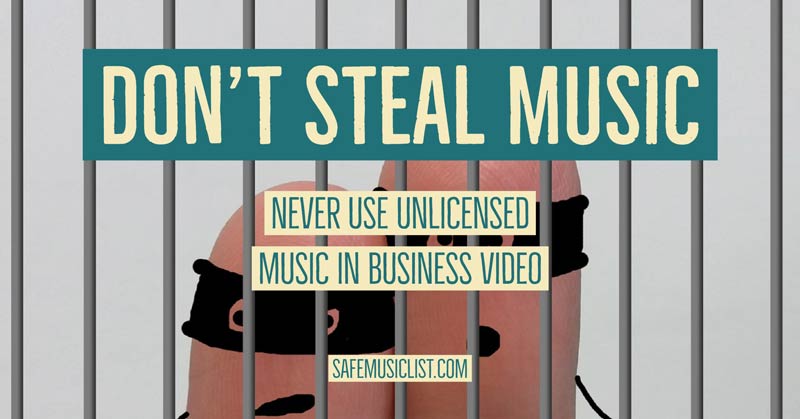
Don’t make these mistakes!
1. I can use any music as long as I give credit!
That’s not true. Giving credit is nice and is surely appreciated by the artist but it grants you no special rights.
The only exception I can think of is using Creative Commons with Attribution license that actually requires you to give credit, in order to use the music.
2. I can use any music as long as I don’t make profit!
Once again, it does not matter whether you make money from your video or not. You still need permission if you plan to use somebody else’s content.
3. I can use any music under fair-use law!
One can make an argument that you still can use copyrighted music under fair-use doctrine of the US copyright law.
If you plan to use fair-use as you line of defense against copyright claims, keep in mind that fair-use primarily applies to commentary, parody, news, and similar uses and won’t work for business videos.
Related: 5 Music Licensing Mistakes That Can Make Your Video Disappear
Should I care about music licensing ?
If you’re working on a media project for your business or for a client, my suggestion is never to use any unlicensed content, especially music.
The common risks include:
1. Your video gets muted, removed, or “complemented” by third party ads.
2. Legal action by the copyright owner against you or your business.
3. Your reputation as a freelancer video editor gets ruined by negative feedback from clients learning you put unlicensed content in their videos.
Let me repeat. Never use unlicensed music in your business or client videos! Period.
What happens if I use copyrighted music on YouTube?
YouTube employs a robust system called Content ID that allows copyright owners to find and claim the videos that use thier content without permission. Every video uploaded to YouTube is scanned against the Content ID database to detect if it contains any copyrighted music or video.
Starting 2022 YouTube has introduced a new “Check” tool that allows you to check your video before it gets published on YouTube.
How to properly license music for commercial business use
When it comes to commercial music, in most cases, the rights are split between the record label and the publisher.
The publisher controls the song (that is, the words and the melody), while the record label controls the recording of that song.
Therefore, in order to use a commercial song in ANY video, you must obtain two licenses:
1. Sync (synchronization) license from the publisher.
2. Master license from the recording label.
The publisher may vary from a large company with thousands of artists to individual songwriters who publish their own work.
You can find publisher information by searching through the major performance rights organizations (PRO) catalogs:
ASCAP (American Society of Composers, Authors, and Publishers)
BMI (Broadcast Music)
SESAC (Society of European Stage Authors and Composers)
On Wikipedia you can find the most complete list of PROs by country.
You can also try to identity copyright owners by searching the US Copyright office database.
Learn more about sync music licenses.
Still can’t find it? Get in touch with the artist or their management and ask.
Be prepared that it may get quite expensive to license a popular song.
Here’s what Gael MacGregor, an experienced music & film industry professional, says about the license negotiation process:
“License fees may vary widely, with the fees based on how it’s used, how many minutes/seconds are used, how many times it’s used, if it’s also used as the opening and/or end title, the overall budget of the project, and so on. Licensing is a wild west kinda proposition — with publishers setting the fee. Whatever the market will bear — or whatever they can negotiate with the requesting party — is what it will cost.”
Thus, be ready to consider alternatives!
A quick note about performance rights
The Sync and Master licenses will give you the right to use copyrighted music in videos and similar media projects.
However, if you plan to broadcast or publicly play your video, you may also need to obtain a so-called performance license.
Most professional composers are members of a performance rights organization (PRO) of their country. The PRO collect performance royalties when their members music is performed in public places or transmitted to the public over the radio or television broadcasts, music-on-hold, cable television, and by the Internet.
Most broadcasters (TV, radio stations), video sharing platforms like YouTube and Vimeo, and venues like hotels and conference halls already have blanket performance licenses that cover all applicable music, so in most case you will NOT need to obtain a separate license on your own.
However, in case your broadcaster or the venue does not have a blanket performance license, you will need to obtain the additional performing rights from a PRO in your country.
Music licensing is complicated! Is there an easier way?
Tracking down the publishers and negotiating the license fees may not be neither quick nor easy. Trying to figure out if you need a performance license may complicate things even further.
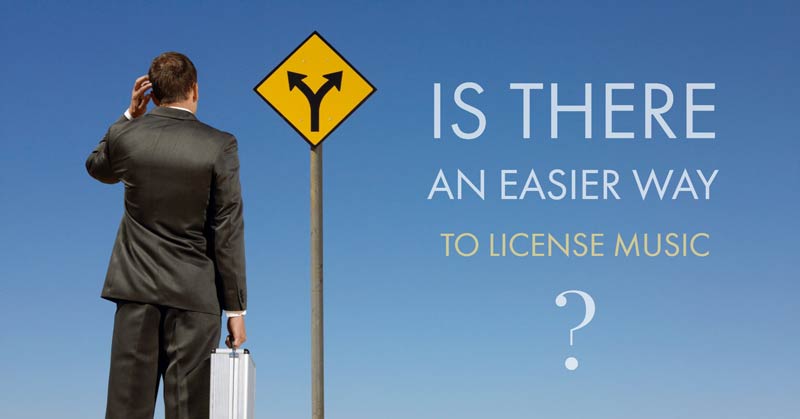
The two biggest issues with negotiating the licenses are time and money.
If you are on the budget, you can consider one of the following options.
Legal free music
Public domain music
That covers compositions and recordings with expired copyright. Note that copyright laws vary in different countries and so does the copyright expiration time.
Furthermore, even if the composition itself is in public domain, the recording may be still under the copyright. That’s often the case with classical and jazz records.
Music available under Creative Commons license
Many composers and musicians distribute their music for free under the Creative Commons license.
Generally that means that you can use Creative Commons music free of charge. However, there are different kinds of creative commons licenses, so pay attention to the details.
Often you will be required to give credit, may be restricted from using the music in commercial projects, or will be obligated to share your work under the same terms.
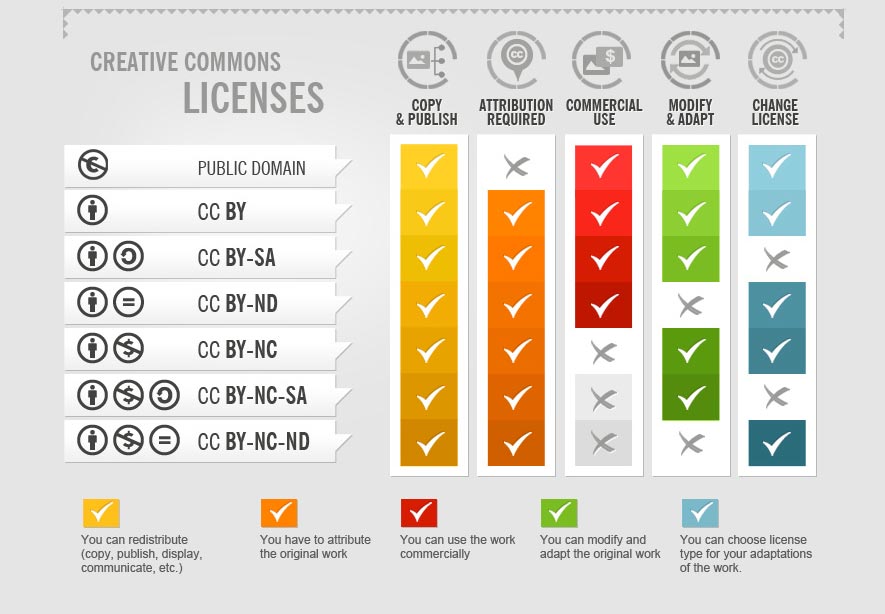
Keep in mind, that even though Creative Commons music won’t cost you in terms of dollars, you will be searching through a vast pool of music that neither was specifically made for marketing video, nor was made to adhere to any particular quality standard.
Not to say that free music is necessarily bad (not at all!) but be ready to search through a really mixed bag.
Stock / production music (made specifically for licensing)
If you have a bit of a marketing budget, consider purchasing a stock music track from a music library.
These days, many large and small music libraries offer affordable instrumental music for commercial use priced specifically for freelance video producers, YouTubers, independent software developers, small business owners and marketers, and so on.
Most libraries will offer a variety of royalty free music licenses depending on how you intend to use the music.
However, when choosing music library pay attention to licensing fine print. Some libraries will require you to purchase a new license for every new project, while others may have more generous terms.
Related: What Is Royalty Free Music?
Related: Infographic: 8 Things Every Video Marketer Must Know About Music Licensing
A quick Web search will give you plenty of options to choose from in terms of both licensing terms and price.
Just to give you an example, here are few songs available at our own royalty free music library. You can license these songs to use in any commercial marketing video, including corporate video, real-estate video, on-hold music, mobile app, political ad, and so on.
Every downloaded music track comes with a licensing certificate that names you (or your business) as the license holder.
More royalty free music for commercial business video
Making lots of videos?
Save on music licensing fees with affordable royalty free stock music subscription.
Takeaway
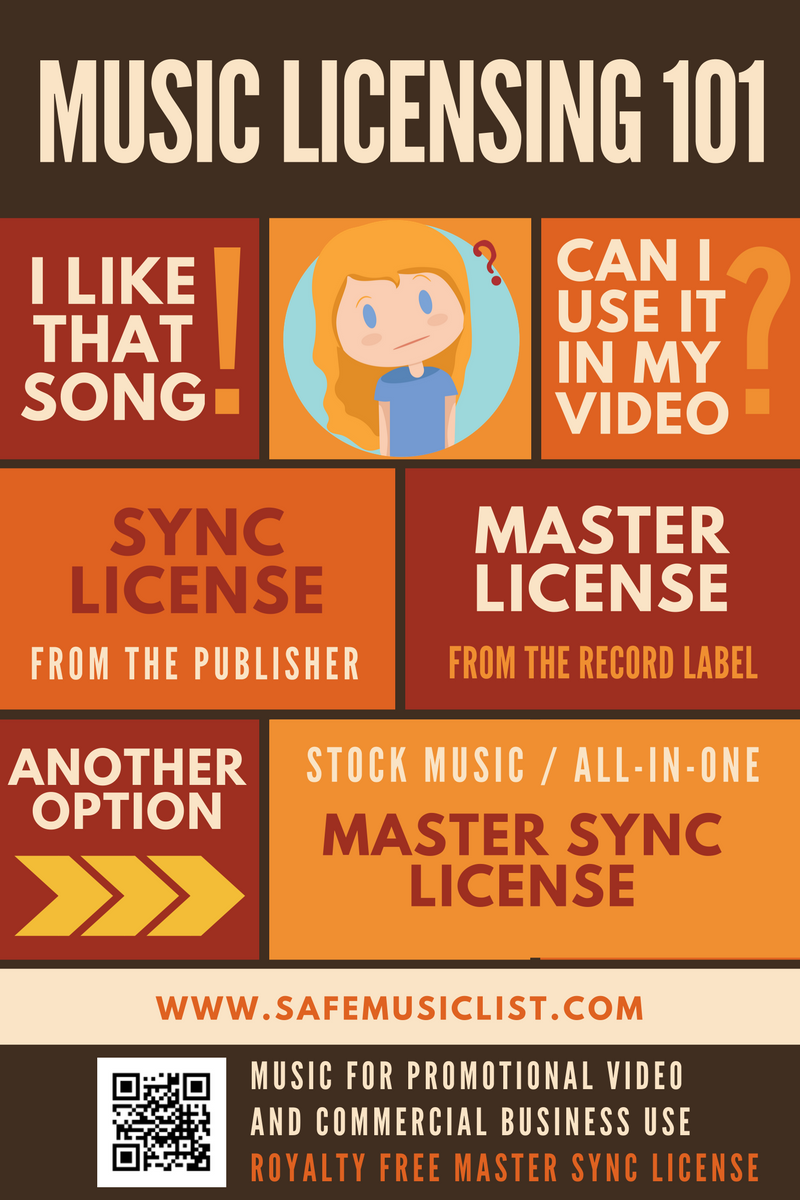
Feel free to download and share this inforgraphic.
Related
- Best Places To Download Free Stock Footage
- 5 Must Have Marketing Videos For Any New Business
- How To Convert Your Business Marketing Videos To Vertical For Better Facebook Engagement
- How To Bring Your Vlog From Obscurity To The Top Of YouTube
- 5 Best Christmas Video Ideas For Holiday Business Marketing
- Choosing Music For Business Video? 3 Rules You Can’t Ignore (Infographic)
- How To License Music For Commercial Video (Infographic)
- Choosing Music For Real Estate Video? 3 Rules You Can’t Ignore: Infographic
- 3 Key Elements Of A Successful Real Estate Video (Infographic)
- How To Get Great Music For Real Estate Video AND Save Up To 50% On Licensing


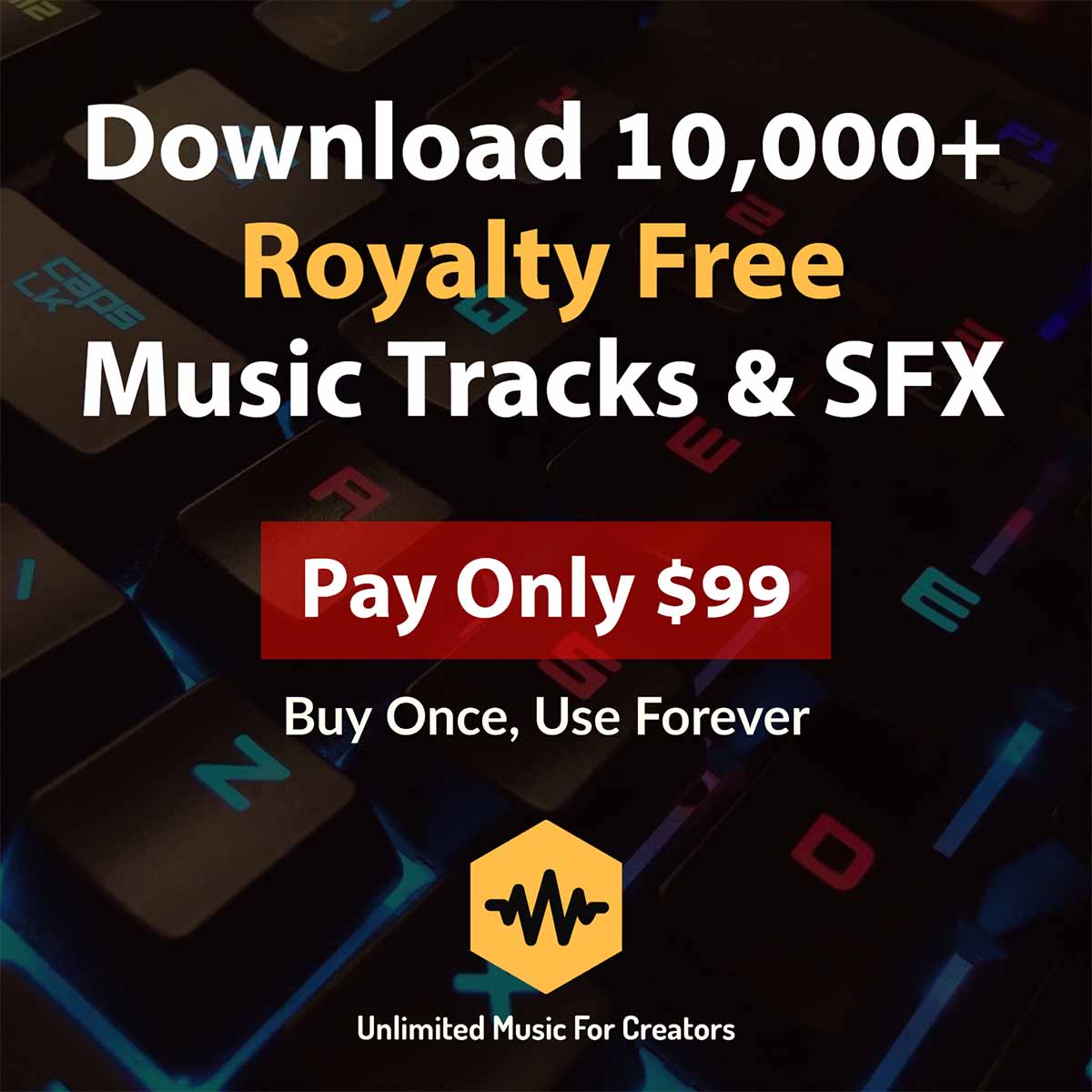

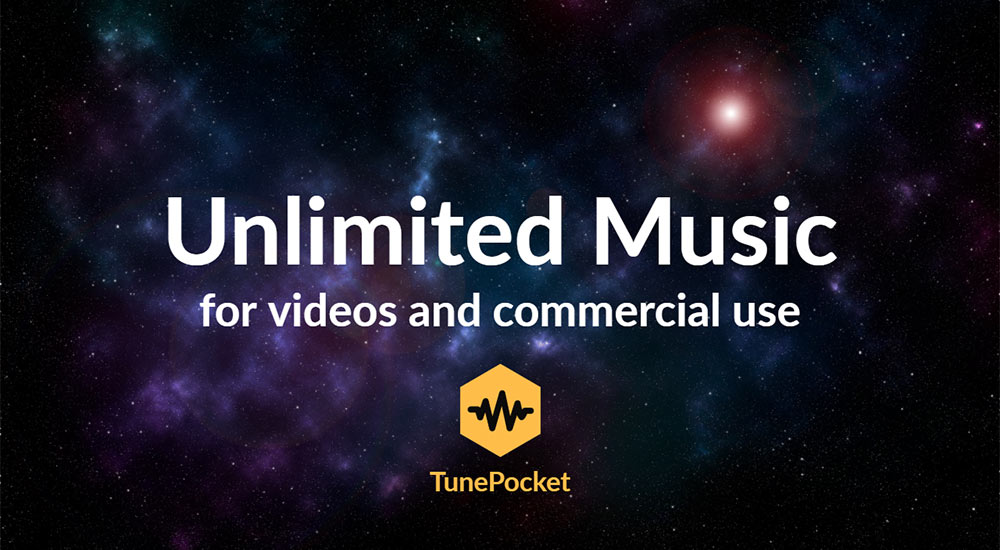
Hi! This may sound like a silly question, but to cover my bases please inform me. I am starting a small business, and want to create short videos (2-5mins) about my work, life, and effort. In these videos, I’d like to have background music to make it more fun.
I am a sole owner and employee. I want to post these videos on my social media to help make my business visible.
I want to make sure what is legal and what is not, as well as how to make this as easy and right as possible.
Thank you!
Hi Corey, that’s a great question. I think, generally speaking you have two broad options:
a) Try and find free music that you can legally use in promo videos
b) Purchase background music made specifically for business videos
The advantage of a) is, of course, that it’s free. However, it may take some effort to find something that you like and CAN use for free. It’s not impossible but involves few extra steps to make sure you cover all bases from the legal point.
Purchase stock music on the other hand is quick and easy but you will have to pay a licensing fee.
Many music libraries offer affordable stock music with a variety of licensing options that cover most common uses.
If you’re planning to make a video series check out a music subscription. You will be able to download unlimited music for a set annual fee.
Here’s an example of such library if you’d like to learn more: https://www.tunepocket.com/music-licensing/
Hope this helps!
how to find commercial user rights of creative common video in you tube ?
Not sure if I understand your question correctly.. But if you’re looking to use creative commons content in commercial project, the sure-fire option would be to contact the rights owner (the creator in most cases) and ask!
Do you know of a site that commercial producers may use to find music that is not royalty-free?
Hi Betty,
These days “royalty free” is used to describe too many things (often incorrectly), so it’s important to understand how exactly you interpret it.
As far as the performance royalties concerned, commercial producers generally don’t care, since the network will be responsible for getting the performance license from the PRO.
If you take this site, for example: TunePocket Music Library
Their subscribers can use the music in multiple projects royalty free but some composers are PRO members so they are still entitled to the performance royalties if their work ends up on television or on commercial radio.
Hi, if I am doing work for the client on a freelance basis and I want to buy a so called royalty free song from the library. Is it so that I specify all the details of my client and basically transfer all the documents and rights to him? If my client then uses this on YouTube does he upload the license with the video or how does it work?
Hi John and thank you for your question.
YouTube uses an automated system called Content ID to detect copyrighted music in videos. If you upload a video with any song that is registered in that system, your videos will get a copyright claim.
The claims do NOT penalize your channel, these are merely notifications. However, YouTube may start showing ads in the video to compensate the music owner.
If you have the license you can request the claims removed.
If you’re looking for a library that tells you which songs are registered with Content ID and provides support with resolving the claims, I always recommend Tunepocket.
That’s one of the most affordable libraries for freelance video editors. You can get either unlimited suibscription or just get a couple of songs with commercial license (so you can pass the license to your client).
Hope this helps!
My client is wanting to use video of my band doing a cover songs for advertisement for a charity event! What steps are needed to be legal?
Hi. My business creates fitness formats and trains and certifies group fitness instructors. I want to put my trainings online, but I’m not sure what to do about music. Group fitness classes are generally an hour long and have continuous music and a particular BPM. Do you know if there is music that I can license for such a project?
This post mentions a collection of music that should work for workout videos: https://www.tunepocket.com/how-to-choose-music-for-workout-video/
Hope this helps!
Hi. If an advertiser obtains music rights from the artist but without exclusivity clause, whereby other brands/advertiser can use the music in their ads as well, will it have implications ?
The only implication that I see that other ads will use the same music. As long as you’re not looking to associate your brand with particular sound that should be fine. Otherwise, secure the exclusive rights or commission a composer to create a unique soundtrack for you. Hope this helps!
My name is John, I am the founder of VidYourBiz. I wanted to reach out to wish you more success in your business and to make sure you know just how vital video is for the growth of your business, as well as to share some information about what we can do to help you satisfy your video needs.
Video is ever-growing because it’s the best way to quickly and concisely relay information to your audience. In fact, web pages with video converts up to 80% more often so every business needs to be utilizing video in their day to day businesses.
If I want to use a remix of a popular song do I contact the original writer or the remix artist?
Hello. I have been asked by a company to create a jingle evoking a song whose name and signature lyrics are related to the name of the company (which is partly of a geographical location). The sound and style of the new piece would clearly suggest those of the original artist, and the use of the company name in the lyrics would be partially the same (word-wise and and vocally) as the signature lyrics of the original.
I’m not at all sure how closely I can reference the original without infringing on copyright. Is there a clear guideline on this or would it be a judgment call in the end? Thanks for any help!
I am a student film maker trying to get the rights to use the song “Shake, Rattle and Roll” recorded by Joe Turner. The song was originally recorded by Atlantic records in 1951. I can’t seem to find out who owns the rights to the song now. What’s the best way to find out?